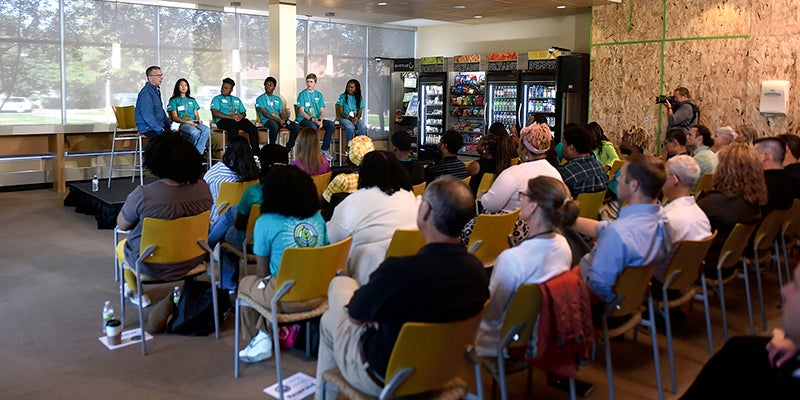Institute gets $422K to study child brain cancer
Published 10:28 am Thursday, October 2, 2014

Dr. Ted Hinchcliffe, of the Hormel Institute uses the state-of-the-art technology at the institute in the fight against cancer.
The Hormel Institute recently got a big boost to research childhood brain cancer.
Dr. Edward Hinchcliffe was recently awarded a $422,000, two-year grant from the U.S. Department of Defense to look into pediatric brain cancer, specifically through research into mistakes that are made during mitosis, or cell division. Those mistakes can cause chromosomes to rearrange in improper ways, leading to chromosome instability.
Hinchcliffe leads the Cellular Dynamics research section at the Institute. He will run experiments on how those mistakes in mitosis can spread brain cancer and how those mistakes link to gene mutations.
Several recent studies have identified gene mutations found in pediatric brain cancers but much more needs to be understood as to why those mutations happen and why they lead to tumor formation in children, he said.
“It’s a very new idea,” Hinchcliffe said. “It’s not something that’s been tested before, but it’s based on our work and other people’s work.”
Hinchcliffe will speak on the project Friday to the Genetics, Cell Biology and Development Department at the University of Minnesota in Minneapolis.
Although childhood cancer is rare, brain and spinal-cord tumors are the third most-common type of pediatric cancer after leukemia and lymphoma, according to the National Cancer Institute.
A human body hosts trillions of cells, and those cells can make mistakes during mitosis – the process in which a parent cell divides into two daughter cells. This can lead to an imbalance of chromosome numbers in the daughter cells. Chromosomes are thread-like structures in cells consisting of DNA and protein that carry genes during cell division.
When a mistake occurs during cell division leading to the loss of a chromosome, the cell loses the functions of all genes on that chromosome, possibly including some tumor-suppressor genes that prevent cancer. If a cell gains a chromosome during mitosis, it gets extra copies of that chromosome’s genes, which might include tumor-promoting oncogenes.
Environmental factors — many associated with active military service — can cause irreversible changes or mutations to cells, Hinchcliffe said, as well as change how a cell responds to a potential problem, such as chromosome instability.
The Institute applied for the grant in October 2013 and has already done some preliminary work to examine gene mutations. Hinchcliffe said Institute scientists are already preparing a paper on some of the work they’ve done thus far.
“We’ve already made progress,” he said. “With this funding, this will allow us to make very rapid progress towards understanding these mechanisms.”





